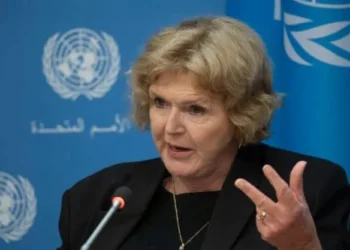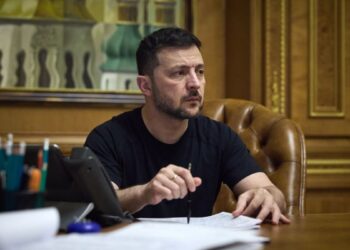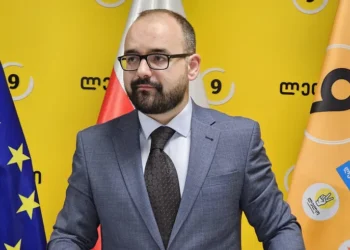While the international community was busy covering the results of the Second Karabakh War, in November 2020, Georgia’s Russia-occupied region of Abkhazia signed a 46-point program to strengthen the framework for a unified socio-economic space with Russia. What could have otherwise been seen as a step towards alleviating the territory’s economic troubles, the program effectively means a de facto annexation of Georgia’s region by Russia.
The latest agreement favors Moscow. Multiple provisions appeared which were absent in the 2014 treaty. For instance, the latest agreement aims at creating various provisions for the sale of local real estate, among them a stipulation on dual citizenship, allowing Russians to get Abkhaz passports. A whole range of laws will be introduced whereby Russian investors will be able to invest money in and buy majority shares in what still remains valuable in Abkhazia.
The latest agreement also proposes allowing the Russians to buy into Abkhazia’s energy sector. Additionally, the Abkhaz will make legislative and administrative amendments according to the Russian law in the social, economic, health and political spheres. There is also a stipulation on simplification of the legal procedures for Russian investors.
This could help a decrepit Abkhazian economy, but growing harmonization with Russian laws also increases chances for a de-facto merger with Russia. This dilemma between closer cooperation with Russia and deep fear of Russian intentions has always haunted the Abkhazian political class, but now it will be even more pronounced. Though officially the new “socio-economic” program does not involve a change in Abkhazia’s political status, the Abkhazian elites fear they are heading down the path to incorporation into Russia.
Criticism prompted de facto president of Abkhazia Aslan Bzhania to deny insinuations about Abkhazia’s loss of “sovereignty” by emphasizing positive elements of the document, namely the re-opening of the Sukhumi airport. Bzhania also cited Abkhazia’s chronic energy shortages and the acute need for Russian assistance. Still, fears persist. After all, Abkhazia has never entertained the idea of merging with Russia, as is the case with another region of Georgia – South Ossetia, likewise controlled by Russian forces.
Russia has been playing a long game, with pressure on Abkhazia mounting over the course of 2020. With the forceful resignation of Moscow-chosen candidate, Raul Khajimba, Bzhania’s candidacy was not viewed with much excitement by the Kremlin officials. As a result, Bzhania had to make multiple visits to secure what increasingly turns out to be a shrinking Russian funding. The pandemic worsened the economy in the region, and Russia was largely unwilling to help financially, but when it did, it came with the price of deepening integration plans.
Of all the separatist regions Russia controls, Abkhazia is arguably the most strategically located. A passage from the North to the South Caucasus, the region is also famous for its harbors and military infrastructure. But it also allows Russia to forestall NATO/EU expansion into the region. Even on an economic level, Abkhazia is far richer than South Ossetia. This factors into Russia’s drive to maximize the benefits from Abkhazia, but it also exemplifies Moscow’s changing narrative on separatist regions, its dilemmas, and a number of long-term objectives.
Abkhazia is slowly losing its last vestiges of de-facto independence. With Russian investments into the energy sector, and land purchases, the region will effectively turn into a de-facto Russian region.
Furthermore, Russian plans in Abkhazia could be seen within the context of Russia’s push to solidify its presence in the South Caucasus, especially along with the events in Karabakh and Russia’s peacekeeping mission there. Economic inroads into Abkhazia also mean a further distancing of other potential players, such as Tbilisi and the collective West.
By Emil Avdaliani
Image source: kremlin.ru














